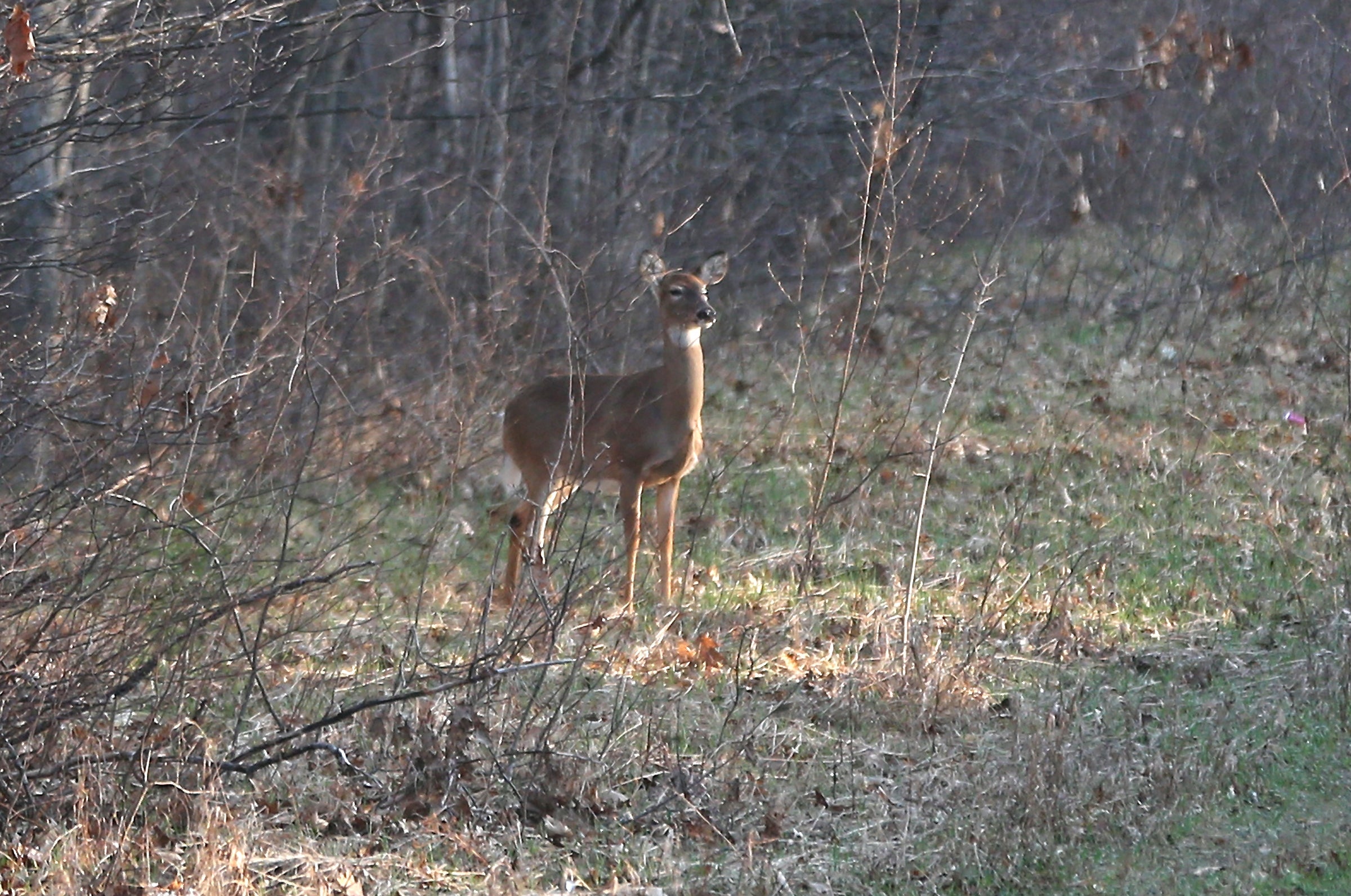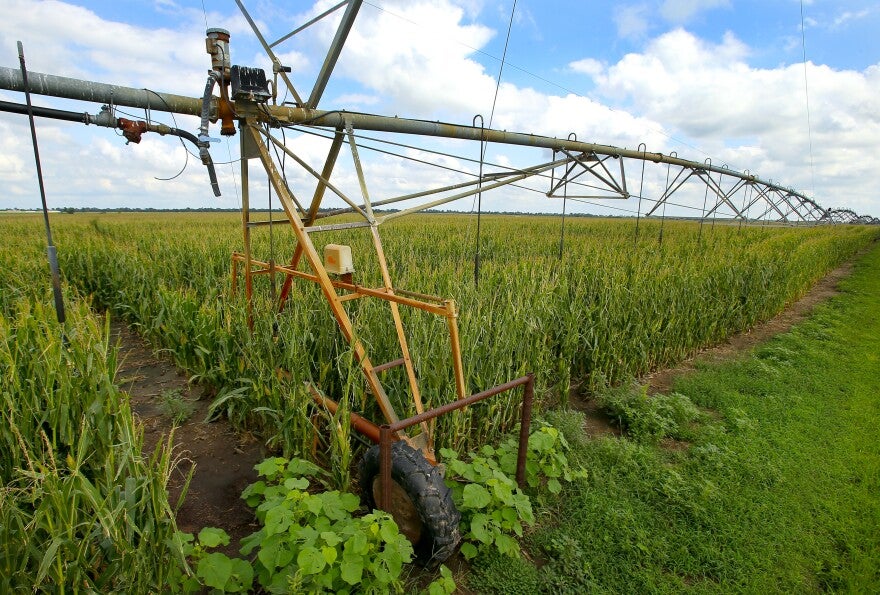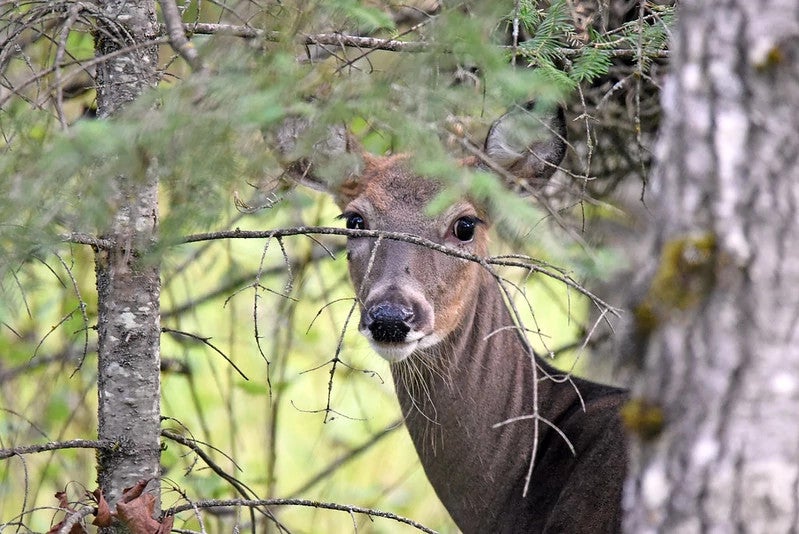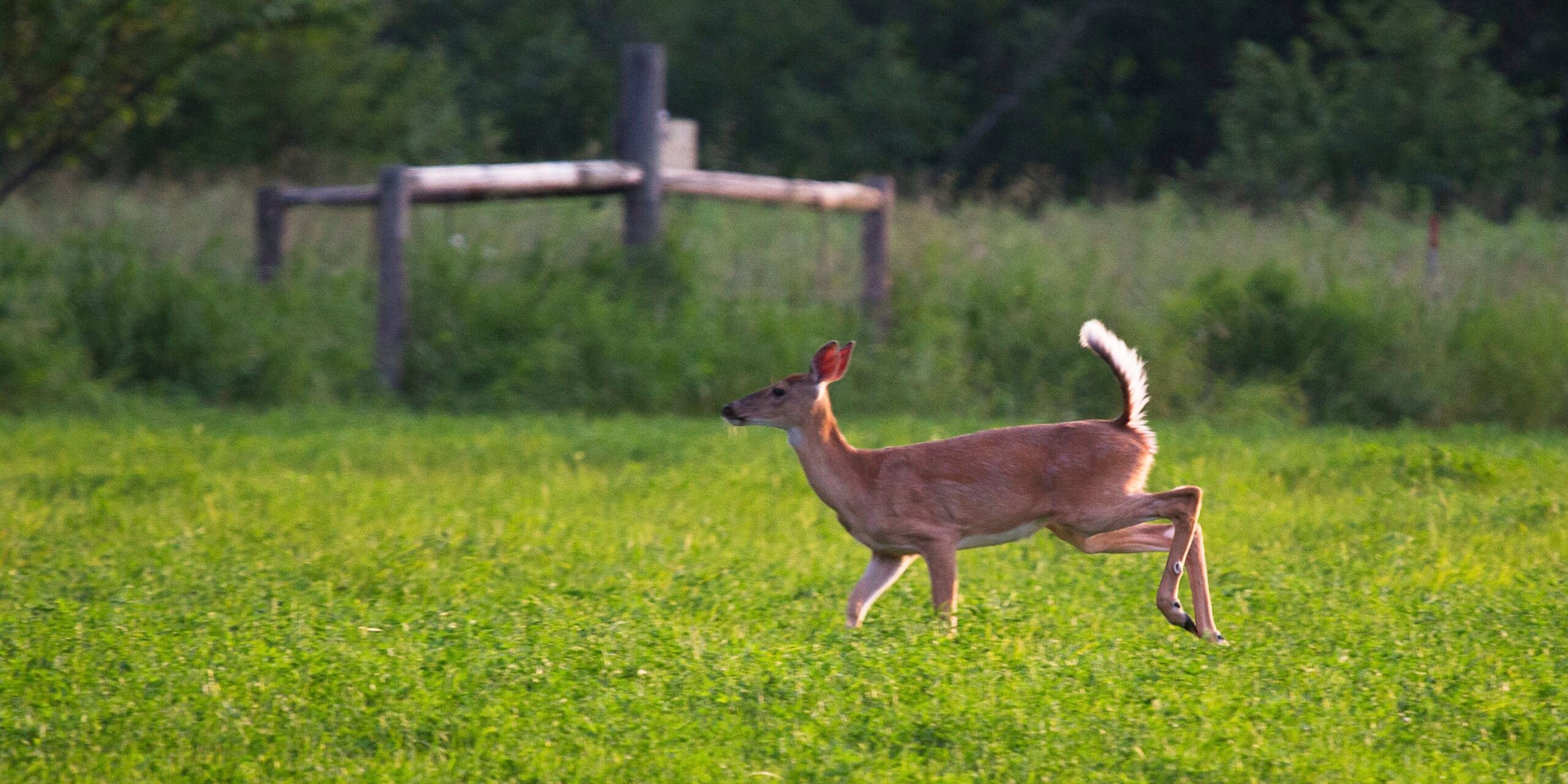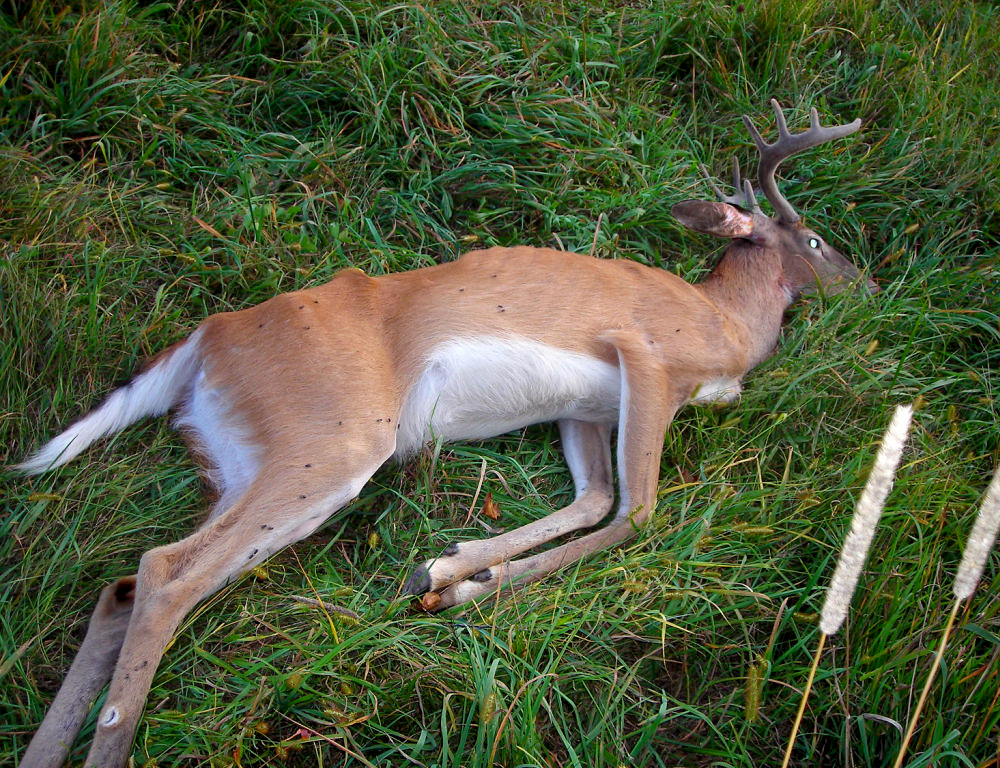People who took part in the Wisconsin Conservation Congress spring survey say they support creating a pilot program that would provide a bounty for deer that test positive for chronic wasting disease.
The Conservation Congress is a citizen group that advises the Wisconsin Department of Natural Resources and the survey allowed respondents to weigh in on questions about proposed rule changes to hunting, trapping and fishing regulations.
People who took part in the survey support the idea of a “payment for positives” program, which would include offering incentives to kill deer infected with CWD. They also support a statewide baiting and feeding ban.
News with a little more humanity
WPR’s “Wisconsin Today” newsletter keeps you connected to the state you love without feeling overwhelmed. No paywall. No agenda. No corporate filter.
Official hearing results showed a proposal to conduct a CWD pilot program received support from 4,408 people while 3,265 were opposed to the idea.
The idea for the pilot program came from retired DNR wildlife biologist Mike Foy. He said he was gratified and surprised by the results.
“I thought this would be a multi-year effort to build support, but I think it tends to maybe reinforce that people are really getting concerned,” said Foy.
Foy said the state tried offering a similar program from 2003 to 2005, but he said the incentives were too low at $200 per hunter. Larry Bonde, chairman of the Wisconsin Conservation Congress, said he was surprised by the support for the proposal.
“If it could work, it does show some hope,” said Bonde. “However, again, it comes with a pretty big price tag, which you’re going to need some legislative action to pull those kinds of dollars into a budget for the DNR to run a program like that.”
There were 5,390 people who also supported implementing a statewide baiting and feeding ban while 2,978 were against the proposal. DNR Secretary Preston Cole questioned the use of baiting and feeding deer in the era of CWD on Tuesday.
Gov. Tony Evers said the suggestions of having a pilot program and a baiting and feeding ban were realistic ways to deal with the problems, but he said they need to know more.
“We need to know what best practices –– what’s worked. But we take it seriously, but we’re collecting that information and we want a comprehensive strategy,” he said.
Evers said the information will be used to develop a comprehensive strategy to address CWD. Republican chairs of the Senate and Assembly Committees on Sporting Heritage were unavailable for comment on Wednesday.
Mike Samuel, an emeritus professor in the Department of Forest and Wildlife Ecology at the University of Wisconsin-Madison, said the previous bounty program was very unpopular with hunters and did little to control spread of the disease.
“As a management program for CWD, I don’t think it shows any hope. I think we’ve been down this road before and we know it doesn’t work, but a version of it could,” said Samuel.
Samuel said a version of the program that focuses on killing adult male deer could help manage CWD. He said adult bucks show the highest prevalence of the disease and in some places, it’s as high as 50 percent.
“But a version of it could. A version of it that focused on adult males might actually pay off and we might actually be able to manage the disease,” Samuel said.
Sampling by the DNR done during the 2018 season found 1,061 deer tested positive for the disease, the majority of which came from southern Wisconsin where the disease was first detected in 2002. There are 56 out of 72 counties in Wisconsin that are now affected by the deadly deer disease.
Samuel added that baiting and feeding deer is an invitation for disease problems to occur. He said the crowding of animals allows more opportunities for the disease to be transmitted among animals whether it’s through saliva, urine or feces.
Money for the program would have to be approved by the Legislature because it might cost up to $1.4 million to pay hunters for CWD-positive deer. The cost would be depending on the amount hunters would be rewarded if the state received 500 submissions of CWD-positive deer, according to a summary on the survey.
The vast majority of survey participants also supported increasing setbacks from agricultural fields to streams by 30 feet and encourage farmers to install buffers, which would require legislation to implement. More than 700 streams and rivers are currently listed as impaired in Wisconsin due to soil loss and pollution from nutrients like phosphorus.
Citizens also support restoring public funding for public lands and making it illegal for a person younger than 10 years old to obtain a hunting license. Former Republican Gov. Scott Walker and lawmakers eliminated a minimum hunting age in 2017 that allowed children of any age to hunt.
The hearing results found that more than 10,700 people took part in the survey this year, which marks a 55-percent increase in participation from last year. The addition of a new option for people to weigh in online rather than appear in person at hearings likely contributed to the increase.
Editor’s note: This story was updated with original reporting. It was also updated at 4:30 p.m. on Thursday, April 18, 2019, with the official results of the spring hearing.
Wisconsin Public Radio, © Copyright 2025, Board of Regents of the University of Wisconsin System and Wisconsin Educational Communications Board.

